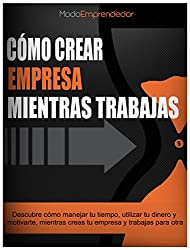
This was written by a magician who got into business and understands that tricks are not as important as authentic connection and compelling keyword communication.
How many times in your childhood when you wanted something, did your parents make you say the “magic word”? At present we are not after sweets or toys, the objectives have changed; but to close a deal or get a partner we must use the right words, or in the words of Tim David, the magic words.
Tim is a professional magician who understood that the tricks he did with his hands weren’t as important as the keywords he had to tell his audience. The wrong word at the wrong time, he could unhook them.
This led him to focus on the keys to achieve more persuasive communication, so he began advising leaders of different companies and his work has been recognized by important media such as the Huffington Post. He assures that his knowledge seeks to close the gaps between the differences that people have, such as parents-children, bosses-employees, doctors-patients, among others; can benefit from magic words.
Also read: Project more leadership with these 6 postures (includes images)
It is clear that there are no magic formulas that allow us to do it overnight, but as with everything, practice will be our ally and we must focus. This is what Tim says in his book Magic Words. Below you will find 4 of the 7 Words exposed in this book.
4 keywords to be more interesting and successful.
1. yes
The greatest fear that we humans have is not knowing how public speaking. Because it translates into fear of rejection. On the other hand, the idea of being accepted seems incredible to us, since we should not change and the magic word to give and receive acceptance is “yes”.
“Yes” at the right times is one of the most important keywords. Since it makes other people lose any kind of predisposition.
So we must say it and make the other person say it too. Tim gives us an example:
Sally: (smiling and friendly) Hi, are you Eric?
Eric: Yes.
Sally: Great! Are you here for the 10:30 appointment?
Eric: Yes.
Sally: I can’t believe it’s already 10:30. It is very hot outside for this hour.
Eric: (smiles)
Sally: Well, we’re glad the heat didn’t stop you. What brings you here?
Eric: I think it’s time to get in shape.
Sally: Yes, you’ve come to the right place.
Eric: Well that’s what I’m trying to figure out. I have other options that I should consider.
Sally: But you’re already here! Is there any reason?
Eric: This is the closest gym to my house.
Sally: Yes, and we have 500 locations worldwide. Obviously having the membership is useless if you can never go, right?
Eric: Yeah, it’s happened to me before.
Sally: Now it will be different. Let me give you a tour and then we’ll go over the numbers. Do you agree?
Eric. Yes, it sounds fine.
2. But
The “but” has incredible power and that is that everything that comes before it is erased and what comes after it is enhanced. Let’s see some examples:
“I love you above all else, but this isn’t going to work.”
“It’s the best product I’ve ever seen, but now I can’t invest.”
“Your work was amazing, but we didn’t reach the goal.”
It doesn’t matter that you have the best intentions, the power of the “but” ensures that the other person only remembers what comes after. What can we do? Just leave the most important part and the one we want people to remember after the “but”.
3. Because
We are rational beings and from a very young age we are looking for an explanation for everything. We see it in children, they are not prejudiced and ask “why” as many times as necessary.
The brain needs to feel that it understands the cause of things, regardless of whether the cause is correct. “If we ask 100 people why they can’t fly, they’ll probably say, “Because there is gravity.”
“Because” is also one of the most important keywords, and here is why:
An answer that begins with “because” will make them feel satisfied even though they don’t really understand the causes. “Gravity” is not an explanation of the phenomenon, it is just a name; but that name along with the word ‘because’ satisfies our brain’s need for causality,” says Tim.
Also read: Brain hacking, achieve what you consider impossible.
In 1971, the researcher Ellen Langer carried out a simple experiment that showed the importance of giving an explanation using a “because” when we seek to influence the actions of others. At that time it was not common for everyone to have access to a photocopier, so there were lines to use them.
When Langer tried to skip a few seats in line by saying, “Sorry, I only have 5 sheets, can I use the photocopier?” he only got 60% positive responses. Instead when he gave an explanation he got 94%! What did he say? “Excuse me, I only have 5 sheets, could you use the photocopier? I’m asking you this favor because I’m in an emergency. It’s just a word, so when looking to influence the actions of others, keep in mind using a “because.”
4. Your name
For Dale Carnegie, author of How to win friends and influence people, our name is the most special sound we can hear. That is why it is important to use that of others.
We tend to have positive associations with our name, to the point where it becomes a fundamental part of the decisions we make. Tim highlights a study on egotism (yes, egotism), where amazing relationships are highlighted. For example, women named Cathy are more likely to prefer Coca Cola and men named Peter are more likely to prefer Pepsi.
Our name is a large part of our identity and hearing it makes us feel valued. When wanting to influence the actions of someone else, we must break the barriers that may distract them from our goal and one way is to start calling people by name.
We hope that you can use these keywords to project yourself as a smarter and more successful person.
And remember, if you are really interested in creating your own business, you can read our book “How to create a company while working: Discover how to manage your time, manage your money and motivate yourself while creating a company and working for another” , where you will find all the information you need to found your own company, without having to leave your job.


